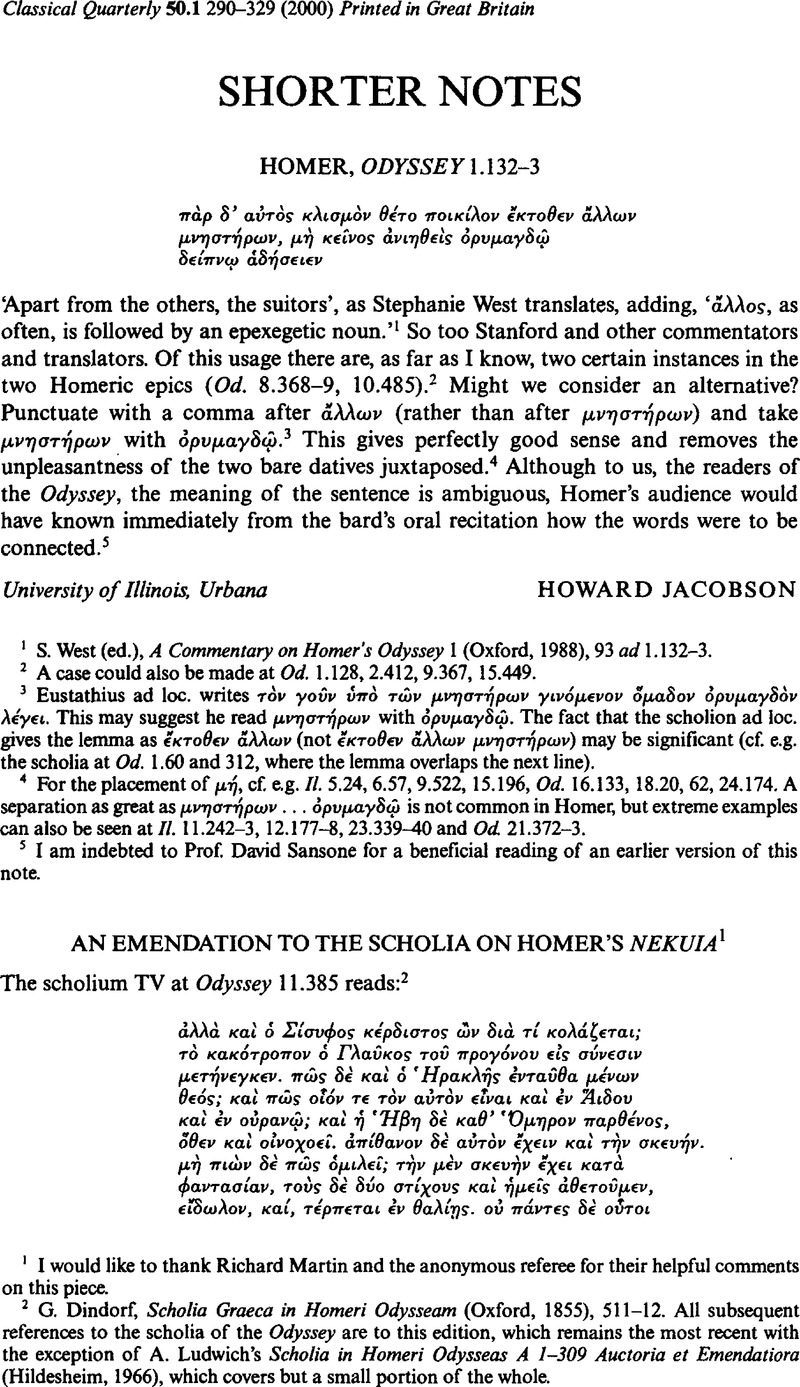No CrossRef data available.
Article contents
Homer, Odyssey 1.132–3
Published online by Cambridge University Press: 11 February 2009
Abstract

- Type
- Shorter Notes
- Information
- Copyright
- Copyright © The Classical Association 2000
References
1 West, S. (ed.), A Commentary on Homer's Odyssey 1 (Oxford, 1988), 93Google Scholarad 1.132–3.
2 A case could also be made at Od. 1.128,2.412,9.367,15.449.
3 Eustathius ad loc. writes ![]() λ⋯γε↓. This may suggest he read μεηστήρωε with òρυμαγδ. The fact that the scholion ad loc. gives the lemma as κτoθεε ἄλλωε (not κτoθεε ἄλλωε μεηστήρωε) may be significant (cf. e.g. the scholia at Od. 1.60 and 312, where the lemma overlaps the next line).
λ⋯γε↓. This may suggest he read μεηστήρωε with òρυμαγδ. The fact that the scholion ad loc. gives the lemma as κτoθεε ἄλλωε (not κτoθεε ἄλλωε μεηστήρωε) may be significant (cf. e.g. the scholia at Od. 1.60 and 312, where the lemma overlaps the next line).
4 For the placement of μή, cf. e.g. il. 5.24, 6.57,9.522,15.196, Od. 16.133, 18.20, 62, 24.174. A separation as great as μεηστήρω… òρυμαγδ is not common in Homer, but extreme examples can also be seen at Il. 11.242–3,12.177–8,23.339–40 and Od. 21.372–3.
5 I am indebted to Prof. David Sansone for a beneficial reading of an earlier version of this note.




